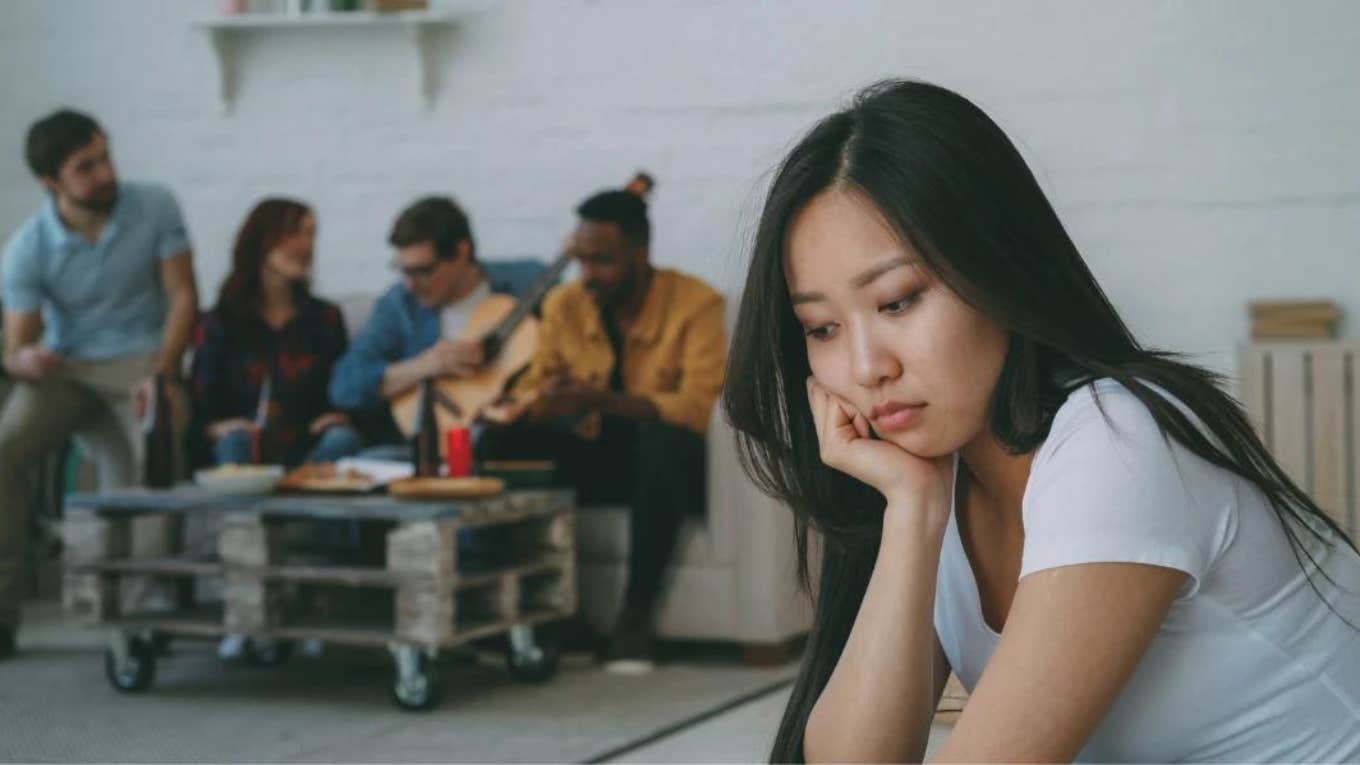Woman Says People Are Not 'Entitled' To Friendship — 'That's Not On Me That You Don't Have Friends'
Many disagreed over whether she's offensive or justified in her claims.
 Silverblackstock / Shutterstock
Silverblackstock / Shutterstock Anyone who's experienced “Mean Girl” high school trauma or the difficulty of making friends in adulthood shuddered a little bit hearing the words of a recent viral TikTok. “You don’t deserve friendship,” Ana Marcks posted in a recent video, adding, “you’re not entitled to friendship.”
With a flurry of backlash that opened many different doors of conversation, Marcks found herself clarifying the original intent of the video, while others conspired about the true meaning behind her hurtful words.
Marcks defended her unpopular opinion that not everyone deserves her friendship, saying that some people ‘just need to be better’.
“If you’re insufferable to be around,” Marcks said, “that’s not on me.”
Many people suggested that while this video was seemingly meant to call out a single person from Marcks' life, she offended and hurt a lot of viewers with her comments.
The crux of Marcks' view centered around the statement, "Of I don't enjoy hanging out with you after like, one or two times, I'm not going to keep inviting you to things." She continued, “It’s not on me that you don’t have friends and I’m the only one that gave you a shot. You have to work on being better.”
Over 45% of Americans find it difficult to make friends, and oftentimes anxiety, new environments, and stereotypes are to blame.
Assuming almost the majority of her viewers have struggled to make friends at one point in their lives, it’s not surprising to see the backlash that Marcks dealt with in her comments section.
Despite the opinions of a few creators on TikTok, many argue that everyone absolutely deserves to find friendship, connection, and love. Being human, we all thrive in community — everyone deserves to feel supported and loved.
Some supported Marcks' opinion of protecting your space from negative energy and toxic friendships.
Some people continued the conversation that was sparked by Marcks, arguing that there have been times when cutting a toxic person out of a friend group or setting boundaries with friends has been incredibly healthy.
“This person that I used to be really good friends with,” one TikToker explained, “would constantly pick fights and argue with my other friends.” Among other things, they explained how problematic their relationship started to become, realizing that they did not owe friendship to this person shifted their happiness for the better.
While many comments under the original video agreed that toxicity shouldn’t be tolerated in friendships, they also point out that Marcks’ original word choice was far from perfect.
Other comments strongly disagreed, believing everyone ‘deserves’ friendship and acknowledging a ‘mean girl dynamic’ at play.
“You have to be pleasant enough that people want to be in your presence,” Marcks ended the video.
But many commenters felt like the standards set in the video were toxic in and of themselves. While most agreed that you don’t need to spend time with anyone you don’t want to, but sharing a video with a “blanket” assumption about friendship was not helping anyone.
“People may not be ‘entitled’ to your friendship,” one user shared, “but they do deserve honest communication and grace.” Another comment empathized with many viewers of the video, saying, “In case you were doubting it after watching, you absolutely deserve love, friendship, and connection.”
Constantly acknowledging that her perspective was likely “mean,” it was difficult to steer away from comments that called Marcks out for her perspective. In a message that was likely misconstrued, a larger conversation started to blossom regarding the nature of making friends in today’s society.
Backlash from neurodivergent communities illuminated a larger conversation about ‘typical’ social settings and the ability to form friendships.
Many creators pointed out the “interesting word choice” used by Marcks to describe not being obligated to be anyone’s friend — a blanket statement that not many people would reject.
Words like “deserve” and phrases like “just be better” certainly didn’t help viewers feel any less offended by the controversial TikTok.
In a rebuttal video, content creator Jess (@jesspantz) vulnerably described the difficulty of making friends for different communities, specifically acknowledging the original viewer's disregard for neurodivergent people.
Similar to the way people learn math, people learn social skills. For example, being in kindergarten and learning how to socialize is a skill taken into adulthood. For many neurodivergent folks, however, it’s a skill that’s not so easily learned; oftentimes, social situations can be overwhelming, and making friends can be much more difficult.
So while the original creator might not have intended to directly target this audience, it’s clear that her parameters for being “deserving” of friendship are linked to some aspect of performance socially, targeting an unattainable standard for many viewers.
Whether the TikTok was poorly worded or not, all the follow-up videos have painted a great picture of modern friendship — one that assures viewers they’re both deserving of friendship and love with healthy boundaries.
Zayda Slabbekoorn is a news and entertainment writer at YourTango focusing on pop culture analysis and human interest stories.

